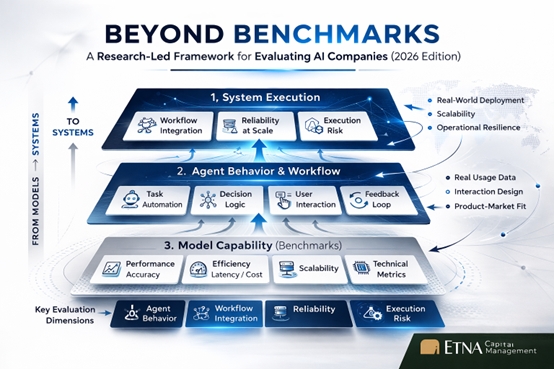
Ashish Sukhadeve, Founder and CEO of Analytics Insight, providing organizations with strategic insights on disruptive technologies.
I’ve watched AI systems evolve beyond simple automation, now functioning as autonomous agents that can make decisions, solve problems and optimize workflows. Due to these abilities, AI agents are quietly gaining influence in boardrooms worldwide.
This article builds directly on the more foundational mindsets I’ve already explored regarding how executives can prepare and leverage these types of intelligent technologies; I would like to focus here on AI agents’ more practical implementations across business functions.
Overall, from operations to customer experience, companies that strategically deploy AI agents have the opportunity to outpace their rivals. Today’s challenge for leaders is not identifying potential benefits, but understanding how to harness these digital workhorses strategically.
What Makes AI Agents Different From Traditional Automation?
AI agents offer more flexibility than traditional automation software, which follows predefined scripts. They observe their environment, reason through data, make decisions and, most importantly, act autonomously.
To illustrate their impact, I’d like to consider three key areas: customer experience, data management and HR. I think these can collectively demonstrate how AI agents drive performance and reshape organizational culture. Customer-facing revenues and engagement demonstrate that AI can have a direct impact on revenues; data management shows its power to connect systems; and HR shows its power to increase employee productivity within your organizational culture.
That said, heavy reliance on AI agents can easily backfire. Too much automation may estrange customers if there are no personal touchpoints in customer interactions, or excessive delegation could confuse employees in HR, who must know who is responsible for giving approvals or guidance.
Your objective should be to apply AI agents in a way that complements human capabilities thoughtfully, neither replacing critical judgment nor empathy.
AI Agents In Customer Experience And Marketing
Customer expectations change more rapidly than most brands can keep pace with. An AI agent can help solve gaps by analyzing behavioral data, tailoring interactions and even anticipating customer needs. Consider Adobe, which utilizes AI agents to deliver targeted content and recommendations that optimize engagement and conversion.
Rather than directly emulate Adobe or a company of this scale, though, smaller or mid-sized businesses can follow these principles: Start with some degree of small-scale personalization, utilize AI to automate repetitive tasks and apply that insight in an intelligent and timely manner. The impact can be most evident in engagement and conversion rates, at least without those fancy infrastructure upgrades that enterprises often lavish on themselves.
AI agents can also power chatbots and virtual assistants, providing real-time responses and building loyalty. AI agents are optimal at handling tedious sales activities such as lead qualification, follow-ups and data entry. As these free up human sales personnel, have them focus on high-value tasks like closing deals and building relationships.
The Allego 2025 Revenue Enablement Report found that 51% of revenue teams already credit generative AI tools with shortening sales cycles. Therefore, as you look to its return on investment (ROI), make sure to focus on shortening sales cycles and increasing conversion rates and productive collaboration between marketing and sales teams.
AI Agents In Data Management
Within many businesses, information tends to be fragmented among separate systems; this impedes analysis. AI agents can help bring together, distill and visualize data, enabling businesses to make informed decisions based on the insights they provide in real time.
Effective integration relies on interoperability, scalability and governance to ensure data quality and security. When utilizing AI agents for data management, the first things to consider are their ability to integrate well with your existing system, ease of use for teams, scalability to support future growth and vendor support for further optimization. This approach ensures the retention of highly effective and sustainable operations.
As a whole, data management lessons from one sector, such as retail, can be applied to other industries, including logistics and healthcare. Consider parameters like real-time tracking, predictive analytics and workflow optimization. AI’s role shifts depending on its function: in operations, it can enable reliable insights and efficiency; in sales and marketing, the focus is on personalization and engagement.
AI Agents In HR And Employee Productivity
HR departments can utilize AI agents as a valuable tool in supporting employees through onboarding and training. Those in HR can look to agents to answer employee questions and assist with mundane administrative tasks.
Especially when it comes to HR, though, employees may resist AI due to its association with job loss or reduced human interaction. A lack of transparency or poorly trained personnel can result in mistrust and non-adoption.
Make sure to communicate how AI will be used, emphasizing the specifics as to its role in providing advice and administrative support. Unlike in sales, where AI agents can help with personalization, you may want even more human oversight in this area.
What Pitfalls Should Companies Be Aware Of?
AI agents have promising potential, but as already touched upon, they also come with risks, and governance should be a priority, for information leakage is a real concern when agents are mismanaged.
Overall, without proper training and support, AI agents may fail to deliver their intended benefits. For instance, one retail company I worked with rushed the deployment of an AI agent for use in customer service, resulting in inaccurate responses that frustrated clients.
The lesson here is the adoption of phases, training of staff members, monitoring of outputs and retaining of human oversight to ensure that the agents are accurate and result in a positive experience.
The Future Of Business?
In the end, leaders must remember that AI is here to augment workflows; it doesn’t replace human judgment or empathy. They are great tools, but they do not replicate context, empathy or strategic decision-making. Effective adoption requires blending human oversight with AI and leaving behind unrealistic expectations of complete automation. By integrating AI agents wisely, you can shape the future of your work.
Forbes Business Council is the foremost growth and networking organization for business owners and leaders. Do I qualify?







